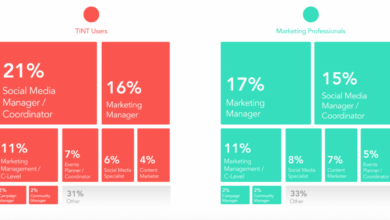
Instagram Resharing Two Easy Ways
How to repost on Instagram two easy ways to reshare. This guide dives deep into the art of reposting on Instagram, exploring the nuances of resharing versus reposting. From simple direct messaging to Instagram’s built-in features, we’ll unravel the secrets to effectively sharing other users’ content while preserving your brand’s integrity and maximizing your reach.
Whether you’re a budding influencer, a business owner, or just someone passionate about sharing inspiring content, understanding the different methods of resharing is crucial for growth and engagement. This comprehensive guide provides clear steps and practical examples to master the art of resharing on Instagram.
Introduction to Instagram Resharing
Instagram resharing is a feature that allows users to repost content from other accounts, effectively sharing it with their own followers. It’s a powerful tool for content curation, engagement, and brand building. It’s commonly used for promoting relevant content, expanding reach, and participating in trending discussions. Users can reshare posts, stories, and reels from various sources.Resharing differs from reposting in that resharing retains the original author’s credit and attribution.
Republishing, on the other hand, is a re-upload of the content to your own feed, thereby losing the original author’s attribution. This distinction is important for maintaining transparency and recognizing the source of the content.
Purpose and Use Cases of Resharing
Resharing serves multiple purposes beyond simple dissemination. It allows users to amplify the message of others, increasing visibility for valuable content. It’s often employed to highlight relevant industry insights, share thought-provoking articles, or showcase products/services related to a specific niche. For example, a travel blogger might reshare a stunning photograph from another user to inspire their audience, or a business could reshare a customer review to showcase their positive experiences.
Distinction Between Replying and Resharing
Resharing and reposting are distinct actions. Resharing acknowledges the original source and typically includes a tag or mention of the original poster, while reposting often removes the original author’s credit. The choice depends on the desired outcome and the context of the content.
Advantages of Resharing
Resharing content offers several benefits, including increased exposure and reach, expanding your network and community, and demonstrating your knowledge and interests. It also fosters engagement with other users and content creators. It is a crucial strategy for maintaining an active presence and driving engagement. Resharing can also strengthen relationships with other users, potentially leading to collaborations or mutual promotions.
Disadvantages of Resharing
Resharing can present certain challenges. It might lead to less engagement compared to creating original content, especially if the reshared content is not tailored to your specific audience. There’s also the risk of being perceived as simply reposting without adding your unique perspective or insights.
Comparison of Replying and Resharing
| Feature | Replying | Resharing |
|---|---|---|
| Source Credit | Directly addresses the original poster’s post. | Acknowledges the original source and author. |
| Content Modification | Usually involves adding a personal response or comment. | Maintains the original content, often with a caption. |
| Engagement | Promotes interaction and discussion. | Enhances the visibility of the original content. |
| Purpose | Reacts to or comments on a specific post. | Shares and amplifies relevant content. |
Method 1
Resharing content on Instagram using the Direct Messages feature offers a straightforward alternative to the built-in reshare tools. This method allows for targeted sharing, making it suitable for specific audiences or close-knit groups. However, it lacks the visibility and reach of the standard reshare option. Direct messages are essentially private channels, so the content’s reach is limited to the recipients you select.This method is ideal for sharing posts with friends or close connections.
While it might not be the most effective way to broadly share content, it’s a valuable tool for specific communication.
Steps for Resharing via Instagram Direct
To reshare a post using Instagram Direct, you need to first open the post you wish to share. Then, you will locate the share button or icon within the post. This will vary slightly depending on the post type (e.g., image, video, carousel). Once you find the share option, you will select it.
- Locate the post you want to reshare on Instagram. Identify the specific post containing the content you wish to share with others. This could be an image, video, or any other type of content.
- Select the “Share” or “Copy Link” option. Depending on the platform and type of post, there might be a button specifically for sharing or a way to copy the link to the post.
- Open the Instagram Direct messaging app. Locate the recipient(s) you want to share the post with. Open a new message or select an existing conversation.
- Paste the link to the post into the message. The link to the post will be pasted into the chat window, allowing the recipient(s) to access the content.
- Include a brief message if needed. You can optionally add a caption or a brief description of the post in the direct message to provide context for your recipients.
- Send the message. The post will be included in the message, and the recipient(s) can then view it.
Limitations and Potential Issues
Using Instagram Direct to reshare content has limitations compared to the standard reshare feature. The primary limitation is the restricted audience reach. It’s primarily for personal or small group sharing, not a broad reach.
- Limited Reach: Resharing via Direct Messages limits the visibility of the content to the individuals you specifically message. This contrasts sharply with the standard reshare feature that allows for wider distribution.
- Potential for Misunderstanding: If the message is unclear or lacks context, recipients may not fully grasp the intended meaning of the shared content.
- Privacy Concerns: Direct Messages are private, which is important to keep in mind. The information shared via this method is not public.
- Engagement Challenges: Without a wider audience, the potential for interaction and engagement with the shared post is diminished.
Method 2
Instagram offers a straightforward way to reshare content, streamlining the process and allowing you to easily credit the original poster. This method leverages Instagram’s built-in features, eliminating the need for external tools or third-party apps. It’s a user-friendly approach for sharing content while maintaining proper attribution.Instagram provides several options for resharing, each with its own nuances regarding attribution.
These methods range from simple reposts to more comprehensive ways to highlight the original source, ensuring that proper credit is given to the content creator.
Different Resharing Options
Instagram allows users to reshare content in various ways. The most common method is through the use of the “repost” button, which, depending on the original poster’s settings, can automatically include a credit to the original creator. Another option involves copying the content and pasting it into a new post, allowing for greater control over the presentation but requiring manual attribution.
Want to know how to repost on Instagram in two super-easy ways? First, you grab the post you want to share. Then, figure out your Instagram engagement rate, which is crucial for understanding your audience’s interest in your content. Knowing how to calculate your engagement rate on instagram, like checking your likes and comments, can help you decide what kind of content resonates best with your followers.
Once you’ve got that figured out, you can decide if the content is worth reposting. Then, it’s just a matter of following the easy steps to reshare the post. There are plenty of ways to share posts from other accounts, which makes Instagram fun and engaging for everyone. how to calculate your engagement rate on instagram will give you more details.
These methods each present advantages and disadvantages, making thoughtful consideration of your needs crucial.
Knowing how to repost on Instagram is key, and there are two simple methods. First, you can use Instagram’s built-in features, which are straightforward. Second, if you’re looking to create more targeted campaigns, check out this helpful guide on create instagram ads your ultimate guide to ad sizes and specs to understand the optimal ad sizes and specs.
Ultimately, both strategies can be powerful ways to boost your Instagram presence!
Attributing the Original Source
Proper attribution is essential when resharing content. Instagram encourages users to acknowledge the original source to respect the creator’s work and maintain a positive community environment. This is achieved by tagging the original poster and using descriptive captions. Mentioning the original poster’s username and the link to the original post in your caption enhances the attribution process.
Step-by-Step Guide for Resharing
This detailed guide Artikels the steps for resharing content using Instagram’s built-in resharing feature, emphasizing the crucial steps for crediting the original poster.
Want to know how to repost on Instagram in two simple ways? It’s super easy! You can either use Instagram’s built-in reshare feature, or a third-party tool like feedbird social media management starting at only dollar99month to streamline your whole social media workflow. Either way, you’ll be boosting your Instagram game in no time!
- Locate the post you wish to reshare.
- Tap on the post to open it.
- Tap the three dots (…) in the top right corner of the post.
- Select “Copy link” to save the original post’s link.
- Create a new post on your Instagram account.
- Paste the saved link into your caption, along with a mention of the original poster’s username (e.g., “@originalposter”).
- Optionally, include a brief description or comment about why you’re sharing the content.
- Tap “Share” or “Post” to publish the reshared content.
Editing Reshared Content, How to repost on instagram two easy ways to reshare
Editing reshared content is possible. You can modify the caption to better suit your needs, while ensuring that the original source is properly attributed. You might want to add context or your own perspective. Remember to maintain the link to the original post for transparency and credit. The editing process mirrors standard Instagram post editing.
Resharing Options Table
The table below summarizes different options for resharing content on Instagram, outlining their pros and cons.
| Resharing Method | Pros | Cons |
|---|---|---|
| Using the “repost” button | Easy, automatic attribution (if enabled by original poster), faster | Limited control over the presentation, may not always include the original link. |
| Copying and pasting content | More control over the presentation, ability to add your own text | Requires manual attribution, more time-consuming. |
Best Practices for Instagram Resharing

Resharing content on Instagram can be a powerful way to expand your reach and connect with new audiences. However, it’s crucial to approach resharing with ethical considerations and best practices to avoid any legal issues and maintain a positive reputation. This section will delve into the essential strategies for responsible and effective Instagram resharing.Respecting intellectual property rights is paramount when resharing content.
Failing to acknowledge the original creator can lead to legal trouble and damage your brand image. This section Artikels the best practices to ensure ethical and legal resharing.
Copyright and Intellectual Property Rights
Proper attribution is key to respecting copyright and intellectual property rights. Simply reposting content without crediting the original creator is a violation of copyright laws. Failure to attribute the original source can result in legal action from the copyright holder. It’s crucial to understand that even if you’ve obtained permission, the original creator maintains ownership of the content.
Using the original post’s image, text, or video without permission is an infringement of copyright.
Legal Implications of Resharing
Resharing content without proper attribution can have serious legal implications. Copyright infringement can lead to lawsuits, financial penalties, and damage to your reputation. Legal consequences can range from cease-and-desist letters to significant monetary settlements. This underlines the importance of understanding and complying with copyright laws when resharing. It’s essential to understand that simply stating “reposted” or “shared” isn’t enough to avoid legal trouble.
Engaging with the Original Post’s Audience
Effectively engaging with the original post’s audience is crucial for both the original poster and your own followers. Adding a personal touch to your reshare can increase engagement and show appreciation for the original creator. Mentioning the original creator in your caption shows respect and allows the original poster’s audience to find the original post. Using relevant hashtags from the original post can help their content reach a broader audience.
Optimizing Reshared Posts for Maximum Reach and Engagement
Optimizing your reshared posts for maximum reach and engagement involves several key strategies. Adding your own unique perspective to the reshare, whether it’s a commentary or a personal experience related to the content, can make your reshare stand out. Use relevant hashtags to expand the reach of the original post and potentially reach a wider audience. Use a compelling caption that draws attention to the reshared content and adds value to your followers.
Engaging with comments and interacting with the original post’s audience will build a connection and further amplify the reach of the post.
Best Practices for Resharing Content
A comprehensive list of best practices for resharing content on Instagram emphasizes the importance of respecting original content creators:
- Always credit the original creator with a clear and prominent mention in the caption.
- Use the original post’s creator’s handle or username in your caption.
- Include a link back to the original post, enabling your audience to discover the original content.
- Refrain from altering or modifying the original content without explicit permission.
- Obtain permission before reposting copyrighted material, even if you’re a social media influencer or content creator.
These best practices ensure that your resharing activities are not only effective but also ethical and legal. This approach helps foster a positive online environment for all content creators and consumers.
Advanced Techniques for Resharing
Resharing content on Instagram goes beyond simply copying and pasting. It’s about strategically amplifying the message of others while also showcasing your own brand’s voice and engagement style. These advanced techniques will help you elevate your resharing game, creating a more dynamic and engaging presence on the platform.Advanced resharing techniques allow you to not only re-present content but also interact with it in a more thoughtful way.
This approach goes beyond basic reposts and unlocks opportunities for cross-promotion, community building, and audience growth. By incorporating these strategies, you can turn simple reshares into powerful marketing tools.
Resharing Stories and Reels
Instagram stories and reels are ephemeral content, meaning they disappear after a certain time. Resharing these formats is essential for extending their reach and maintaining audience engagement. You can save a story or reel to your phone, and then post it to your own feed, or even repost it as a new story. This extends the reach of the original content, allowing you to bring it to a new audience.
Highlighting the Original Poster
Acknowledging the original creator is crucial for maintaining a positive online reputation and building trust. Using Instagram’s built-in features to credit the original poster demonstrates respect and encourages a collaborative environment.
- Tagging: Explicitly tagging the original poster in your caption or post will not only give credit where it’s due but also potentially expose your post to their followers. This can lead to a win-win situation for both parties.
- Mentioning in the caption: Mentioning the original poster’s username directly in your caption acknowledges their contribution and drives traffic to their profile. Adding a phrase like “Big shoutout to [username] for this amazing content!” can be very effective.
- Adding a “Reposted from” note: Including a brief statement like “Reposted from [username]” in your caption clearly indicates that you are sharing someone else’s content, adding clarity and professionalism to your reshare.
Utilizing Instagram’s Tagging and Captioning Features
Strategic tagging and captioning can dramatically impact the reach and engagement of your reshares. Well-crafted captions not only credit the original poster but also provide context and value to your audience.
- Captions: Add a brief, insightful commentary on the content you’re sharing. This demonstrates your understanding and engagement with the topic, and potentially attracts more followers. A short, thoughtful caption can greatly enhance your reshares.
- Relevant Hashtags: Incorporating relevant hashtags expands your reshare’s visibility and makes it discoverable by a wider audience. Using hashtags that align with the original content and your own niche ensures a wider audience sees your post.
- Call to action: Adding a call to action in your caption encourages interaction. This can be something as simple as asking a question related to the content or prompting users to share their thoughts in the comments.
Utilizing Relevant Hashtags for Discoverability
Utilizing relevant hashtags is crucial for boosting your reshares’ visibility. By incorporating s and themes that align with the original content, you can significantly increase your chances of reaching a broader audience.
- Research: Research relevant hashtags to use alongside the original content’s hashtags. This ensures you’re using hashtags that are most relevant to your audience and the original content.
- Avoid overusing hashtags: Overusing hashtags can make your post look spammy. Use a strategic mix of popular and niche hashtags for maximum impact.
- Consider audience and content: The best hashtags will depend on the specific content you’re sharing and your target audience. Matching your hashtags to the context will increase your visibility and engagement.
Advanced Techniques for Creative Engagement
Creating engaging content is a core part of Instagram resharing. It’s not just about replicating the content; it’s about presenting it in a way that adds value and encourages interaction.
- Adding your unique perspective: Offer a unique perspective or interpretation of the content you’re sharing. This will distinguish your post and make it more engaging.
- Asking questions: Pose questions related to the content to encourage interaction and discussion among your followers.
- Running polls or quizzes: Using Instagram’s poll or quiz features can be a fantastic way to engage your audience and collect feedback.
Troubleshooting Common Issues
Resharing content on Instagram, while a great way to boost visibility and engagement, can sometimes present unexpected challenges. This section delves into common problems users encounter during the resharing process, offering practical solutions and troubleshooting steps. Understanding these potential pitfalls and their remedies will ensure a smooth and effective resharing experience.Troubleshooting common Instagram resharing issues is crucial for maintaining a positive online presence.
Efficient problem-solving leads to a more streamlined process, allowing you to focus on engaging with your audience and maximizing your content’s reach.
Resharing Process Errors
Common errors during the resharing process can stem from technical glitches or misconfigurations. Knowing how to identify and fix these issues is vital to avoid frustration and maintain a consistent posting schedule. Here are some of the most frequent issues:
- Connection Problems: A weak or unstable internet connection can disrupt the resharing process, resulting in errors or incomplete uploads. Ensure a stable Wi-Fi or mobile data connection to prevent these issues.
- Instagram App Issues: Outdated or malfunctioning Instagram applications can cause compatibility problems during resharing. Updating the app or clearing the cache can resolve these issues.
- File Size Restrictions: Instagram imposes limits on the size of files that can be shared. If your reshared content exceeds these limits, it will likely fail to upload. Consider compressing images or videos before resharing to ensure they meet Instagram’s file size requirements.
Attribution Issues
Properly crediting the original content creator is essential for ethical resharing and avoiding copyright infringement. Ignoring attribution can lead to negative consequences. Here are some common problems and solutions:
- Missing Credits: Forgetting to tag or mention the original poster in your reshare can be a serious mistake. Always use the appropriate tagging features on Instagram to credit the original source. This demonstrates respect for the original creator’s work and avoids potential issues.
- Incorrect Tagging: Misidentifying the original poster through incorrect tagging will not correctly attribute the content. Ensure you’re tagging the correct account. Using the correct Instagram handle is vital to avoid misattribution.
Handling Post Removal
The original poster might remove their post after you’ve reshared it. This can lead to a missing post on your feed. Here’s how to handle this:
- Content Disappearance: If the original post is removed, the reshared content will often disappear from your profile. While you can’t restore the removed content, taking preventative measures like using appropriate tagging, licensing, or saving a copy of the post can be helpful.
Troubleshooting Steps
Systematic troubleshooting steps are crucial for resolving various resharing problems. These include:
- Checking Internet Connection: Verify your internet connection’s stability before attempting to reshare content. A stable connection prevents interruptions during the process.
- App Updates: Ensure your Instagram app is up-to-date to address any potential compatibility issues.
- Re-sharing Content: Try resharing the content again, ensuring a stable connection and proper file sizes. If the problem persists, check the original post for potential removal.
Case Studies and Examples

Instagram resharing isn’t just about reposting; it’s about strategic amplification. Successful reshares leverage existing content to reach new audiences, drive engagement, and build brand awareness. This section dives into real-world examples, highlighting how different accounts effectively utilize this technique.Effective resharing goes beyond simply copying and pasting. It’s about understanding the context of the original post, tailoring the reshare to your audience, and adding your unique perspective.
Successful resharing strategies often involve a combination of creative techniques and a keen understanding of platform algorithms.
Real-World Examples of Effective Strategies
Different approaches work for different accounts. A travel blogger might re-share a stunning photo of a destination, adding their personal experiences and local recommendations. Conversely, a tech startup might re-share an article about a competitor’s new product, offering their own analysis and a link to their alternative solution. These variations demonstrate the flexibility of resharing.
Comparison of Resharing Strategies
| Strategy | Account Type | Content Format | Engagement Metrics | Results |
|---|---|---|---|---|
| Travel Blog Resharing | Travel Blogger | Stunning photo with personal caption, local tips | High likes, comments, shares | Increased follower count, bookings from affiliate links |
| Tech Startup Resharing | Tech Startup | Article analysis with links to their product | Comments, shares, clicks on link | Brand awareness, potential customer leads |
| Fashion Influencer Resharing | Fashion Influencer | High-quality product photo, review with unique styling tips | High likes, comments, saves | Increased brand collaborations, higher sales of promoted items |
This table showcases how diverse accounts leverage resharing, adapting strategies to match their niche and objectives. Note that engagement metrics and results are influenced by factors such as audience size, content quality, and platform algorithms.
Creative Resharing Tactics
Creative resharing isn’t just about reposting; it’s about adding value. Successful accounts frequently use engaging captions, insightful commentary, and relevant hashtags to enhance their reshares. They also incorporate interactive elements, such as asking questions or running polls, to encourage audience participation.
- Adding a personal touch: Adding a unique perspective or personal anecdote to a re-shared post can make it more engaging and relatable for your audience. For instance, a fitness influencer might reshare a workout routine, adding their own modifications and motivational tips.
- Using different formats: Transforming a single image into a carousel post, a video, or a reel can create a more dynamic and appealing reshare. A food blogger might reshare a recipe, presenting it as a short video showcasing the cooking process.
- Asking questions and running polls: Engaging your audience directly through polls or questions about the re-shared content can boost interactions and create a sense of community. A fashion brand might reshare a trend-setting outfit, asking their followers what they think of it and what accessories they’d pair with it.
These tactics not only amplify the original content but also establish a connection with the audience. By tailoring the reshare to their specific interests and needs, these accounts foster a stronger relationship with their followers.
Summary: How To Repost On Instagram Two Easy Ways To Reshare
In conclusion, resharing on Instagram can be a powerful tool for expanding your reach and engaging with a wider audience. By understanding the different methods, best practices, and potential pitfalls, you can leverage resharing to your advantage. Remember to always credit the original poster and respect copyright, and use these techniques strategically to amplify your Instagram presence.





